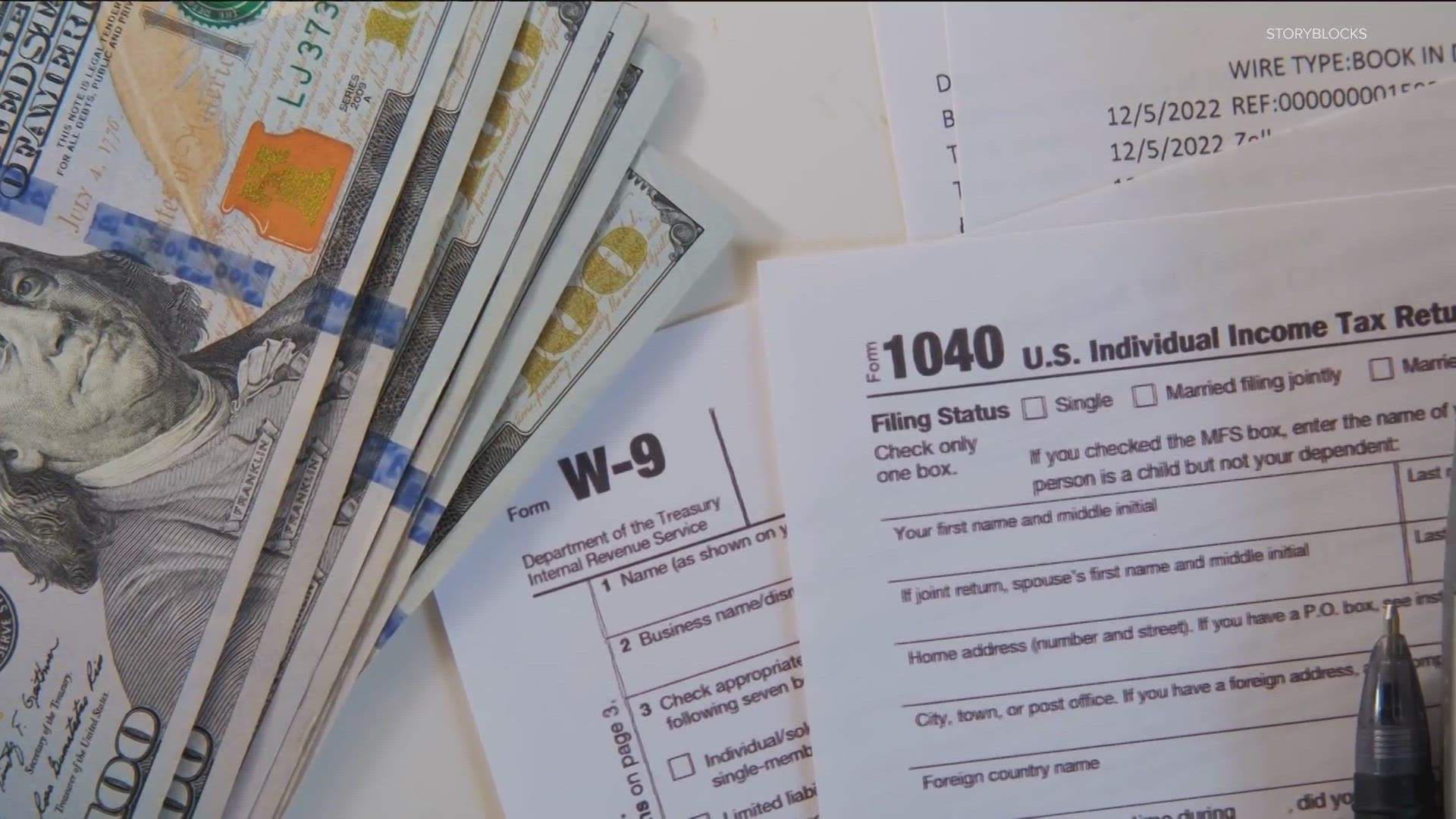WASHINGTON — Benjamin Franklin once wrote that in all the world, "nothing is certain except death and taxes."
And like clockwork, the Internal Revenue Service each year opens a multi-month window for U.S. taxpayers to file their taxes.
This year, the IRS has selected Monday, Jan. 29 as the official start date of the 2024 tax season. The government agency expects more than 128.7 million tax returns to be filed by the April 15 tax deadline.
This year's tax season may be somewhat different than usual. The IRS is in the middle of a massive technological overhaul as it attempts to improve its technology and customer service processes with tens of billions of dollars allocated to the agency through Democrats’ Inflation Reduction Act, signed into law in August 2022.
“As our transformation efforts take hold, taxpayers will continue to see marked improvement in IRS operations in the upcoming filing season,” said IRS Commissioner Danny Werfel in a news release. “IRS employees are working hard to make sure that new funding is used to help taxpayers by making the process of preparing and filing taxes easier.”
What's different this year?
Agency leadership says this year more walk-in centers will be open to help taxpayers, enhanced paperless processing will help with IRS correspondence and enhanced individual online accounts will be available for taxpayers.
Additionally, eligible taxpayers will be able to file their 2023 returns online directly with the IRS through a new, electronic direct file pilot. The IRS says it will be rolled out in phases and is expected to be widely available in mid-March.
The IRS expects most refunds to be issued in less than 21 days.
Can I submit my tax return digitally?
This year, in a change toward bringing the IRS into the digital age, taxpayers will be able to submit all sorts of tax documents and other communications to the IRS digitally, Treasury Secretary Janet Yellen confirmed.
“The impact will be significant and far-reaching,” Yellen says in a speech prepared for delivery at IRS headquarters in Washington last year. "And we’ll speed up processing times for the system as a whole.”
The IRS has endured decades of underfunding and been overloaded with paper documents that prevented the agency from processing tax forms at a faster pace.
The IRS plan for customer service improvements for the 2024 filing season comes against the backdrop of a series of proposals by congressional Republicans to reduce its funding.
Under the initiative, most people will be able to submit everything but their tax returns digitally in 2024. As the IRS pilots its new electronic free file tax return system starting in 2024, the agency will be able to process everything, including tax returns, digitally by 2025.
Are there still massive paper backlogs?
In previous years, the IRS was slammed with massive backlogs of paper tax returns. In June-2022, the IRS faced more than 21 million backlogged paper tax returns, with National Taxpayer Advocate Erin Collins stating at the time: "The math is daunting.”
Now, with increased funding the IRS expects a smoother filing season with less backlogs, but now it is seeing persistent threats of funding cuts.
Last year's debt ceiling and budget cuts deal between Republicans and the White House resulted in $1.4 billion rescinded from the agency's original $80 billion allocation through the Inflation Reduction Act, and a separate agreement to take $20 billion from the IRS over the next two years and divert those funds to other nondefense programs.
How much is the child tax credit?
While it's not certain that it will make its way into law, the Republican-led House is looking to vote sometime in the first week of tax season on a bipartisan bill to expand the child tax credit and put new tax breaks in place for businesses.
The tax package, with about $78 billion, cleared the House Ways and Means Committee on a 40-3 vote, making it one of the most universally-approved bills in the closely divided Congress.
The bill requires a two-thirds majority to pass the House, and then will need a Senate vote before it can head to President Joe Biden's desk.

